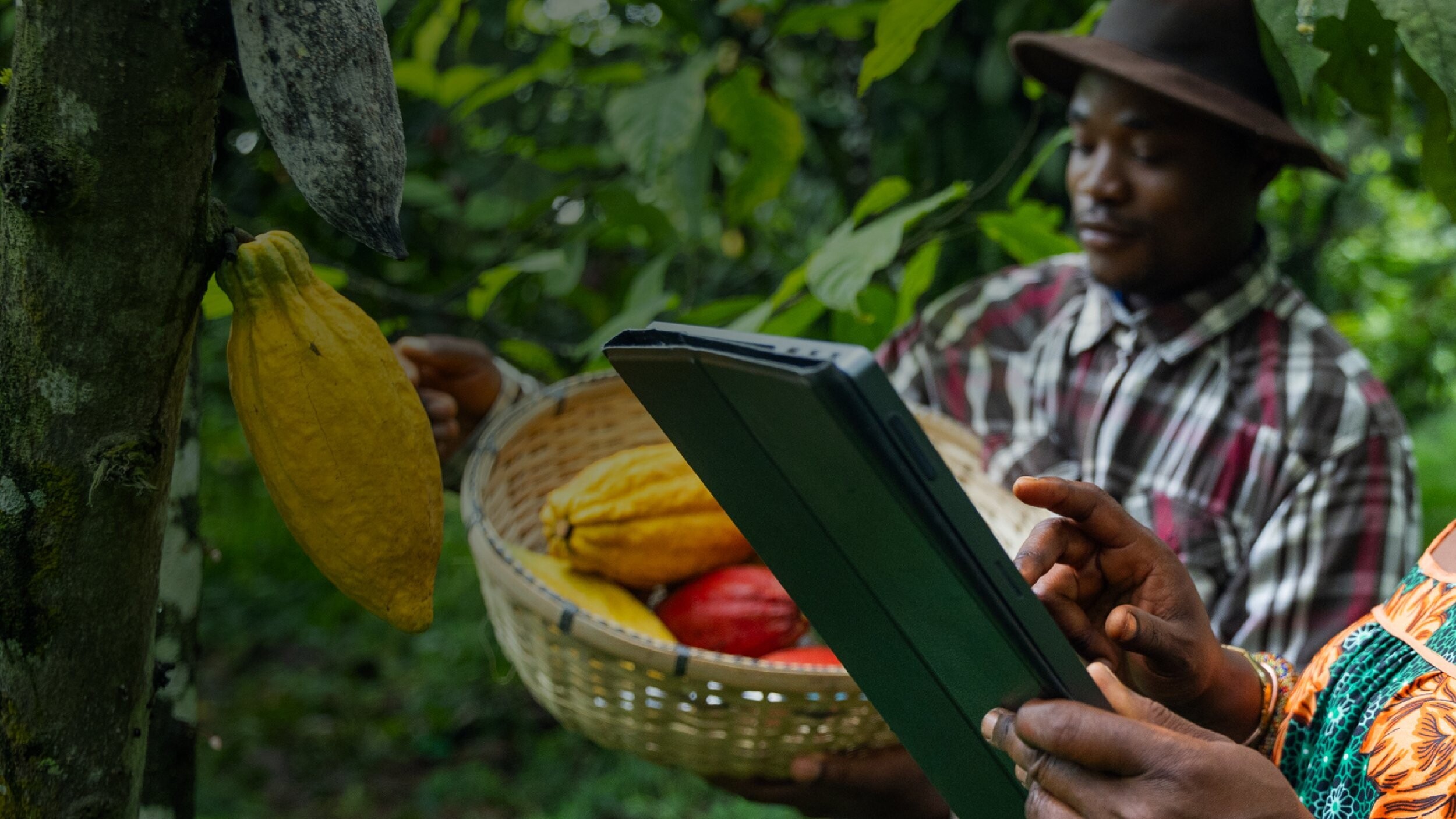Want to see real change in the world? These seven books will inspire you

Essential reading for changemakers who want to see deeper change Image: Photo by Becca Tapert on Unsplash
Francois Bonnici
Director, Schwab Foundation for Social Entrepreneurship; Head of Foundations, World Economic ForumListen to the article
- Our approaches towards social change need to evolve to address systemic problems.
- Social innovators, and disrupters of systems in the service of others, offer unique insights to making the world a more just, sustainable, and equitable place.
- Here are seven books for your reading list for you to become a more effective changemaker.
How do we make the world a better place? It’s not resources, solutions, or technologies that we lack, it’s resourcefulness. We need to work out how we organize ourselves as citizens, governments, and businesses to transform. Social innovators, and disrupters in the service of others, offer unique insights to making the world a more just, sustainable, and equitable place. Together, the Schwab Foundation’s community of social innovators have impacted the lives of over 722 million people in over 190 countries. Add these six books to your required reading list, and you too can inspire change:
Facilitating breakthrough: How to remove obstacles, bridge differences, and move forward together

by Schwab Foundation Social Innovation Thought Leader, and 2022 Awardee, Adam Kahane, Director, Reos Partners.
As world issues like climate change, COVID-19 alongside societal, economic, and political tensions become more intense, so too does making real progress, and finding solutions to difficult challenges together. In this book, Adam Kahane explores the contribution that facilitation can make to help people collaborate better to make real progress. He describes a new approach of transformative facilitation, in which rather than forcing the other person to agree, the facilitator removes obstacles that stand in the way of people contributing and really connecting. This book applies to many of today’s diverse situations and is perfect for anyone that works on collaborating with people, organizations, stakeholders, and more. Find out more about how to use transformative facilitation to achieve real breakthroughs.
Five scarves: Doing the impossible, if we can reverse cell fate, why can’t we redefine success?
By Schwab Foundation Social Innovator and 2022 Awardee, Rana Dajani, Founder of Taghyeer/We Love Reading (WLR).
Rana Dajani is a mother, teacher, scientist, social entrepreneur, and feminist, symbolized by wearing ‘Five Scarves.’ In this book, Rana describes the challenges she’s faced and the innovations she’s made in genetic analysis to grassroots social change and Islamic perspectives on evolution. This book is an exploration between the intersections on gender, race, religion, and science, told through the eyes of one of the world’s leading Muslim women scientists, doing the impossible.
Prisms of the people: Power and organizing in twenty-first-century America

by Schwab Foundation Social Innovation Thought Leader, and 2022 Awardee, Hahrie Han, and Elizabeth McKenna, and Michelle Oyakawa.
Prisms of the People looks at the differences between a movement that wins victories for its constituents, and one that fails, and the factors that make collective action powerful. It takes a specific look at grassroots organizing and collective action in America as underrepresented people struggle to make their voices heard. Using data from six-movement organizations—Hahrie Han, Elizabeth McKenna, and Michelle Oyakawa show that the power of the most successful movements is found in their ability to act as “prisms of the people,” turning participation into political power. Understanding the organizational design choices that shape the people, their leaders, and their strategies can help us understand how grassroots groups achieve their goals. This book links strong scholarship to a deep understanding of the needs and outlooks of activists.
Radical football: Jürgen Griesbeck and the story of football for good

by Steve Fleming. Social innovator and 2011 Schwab Foundation Awardee, Jürgen Griesbeck, wrote the last chapter of Radical Football to help conclude and distil why the world needs radical collaboration to tackle the challenges of our times and how football has a critically enabling role to play.
From using football to promote peace on the streets of Medellín, to building a global network of Football for Good organizations, Jürgen is now leading transformational change across the football industry, with entire clubs, companies, and competitions. He believes that collaboration (team play) is probably the biggest innovation of our time. He has invested the past 25 years in building an entrepreneurial ecosystem and mobilising the football industry to efficiently contribute to sustainably scale the impact. This book captures Jürgen's passion, drive, and leadership, and presents a collaborative vision to put purpose – people and planet - at the heart of football.
The systems work of social change

The systems work of social change: How to harness connection, context, and power to cultivate deep and enduring change.
Written by François Bonnici, Director of the Schwab Foundation for Social Entrepreneurship, and Cynthia Rayner, Researcher, Bertha Centre for Social Innovation, University of Cape Town, South Africa.
The Systems Work of Social Change, Cynthia Rayner and François Bonnici draw on two hundred years of history and a treasure trove of stories of committed social changemakers to uncover principles and practices for social change that radically depart from industrial approaches. Rather than delivering “solutions,” these principles and practices focus on the process of change itself. Through rich storytelling and lucid analysis, Rayner and Bonnici show that connection, context, and power sit at the heart of the change process, ensuring broader agency for people and communities to create social systems that are responsive and representative in a rapidly changing world.
The worth of water, our story of chasing solutions to the world’s greatest challenge

by Schwab Foundation Social Innovator, Gary White and Matt Damon.
For more than 30 years Gary White and Matt Damon have has been dedicated to empowering people in the developing world to gain access to safe water and sanitation and has ve been pioneering market-driven financial solutions to the global water crisis which affects a third of the world’s population. In 2009, Gary was joined by the actor, Matt Damon.
In their latest book, Gary and Matt explain what happens when a “movie actor and a civil engineer team up to try and take on the global water crisis — the stumbles and obstacles, the breakthroughs and big gains, and the incredible people we met along the way."
The Worth of Water demonstrates the challenges in building and scaling market-based financial solutions to the water crisis and is a story about how individuals and communities can be empowered to make long-lasting investments in clean water and sanitation.
Power, for All: How it really works and why it’s everyone’s business

by Schwab Foundation Social Innovator and 2019 Awardee Julia Battilana, and Tiziana Casciaro.
Co-authors Julia and Tiziana want to change how people see power, not a tool reserved for the privileged few, or dirty business, but as energy for everyone to harness to make our life, work, and society better. In their book, Power for All, they identify the antidotes that leaders have at their disposal to counter the poisonous and disastrous effects of power, and the opportunities presented by the relentless pursuit of the common good. They argue that leaders need to practice humility as an antidote to hubris and empathy as an antidote to self-focus. In turn, empathy and humility are conducive to learning and the pursuit of altruistic goals, two key ingredients for using power for a collective purpose rather than mere self-interest.
Read more about the 2022 social innovators of the year driving change and transforming societies.






